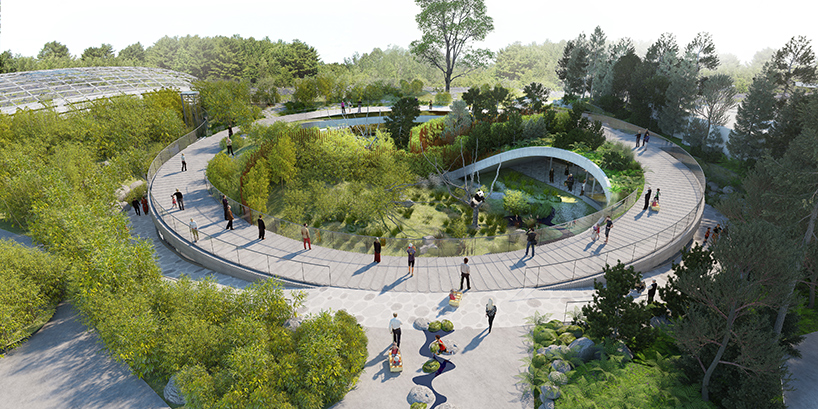Bjarke Ingels to Design Panda Habitat at Copenhagen Zoo

Bjarke Ingels Group has released renderings for a new giant panda habitat at the Copenhagen Zoo. Designed in collaboration with Schønherr Landscape Architects and MOE, the zoo’s newest addition will create a peaceful environment for one of the world’s rarest mammals.

The 26,000-square-foot structure will mimic the hilly bamboo forests of western China, but with a symbolic twist. “The habitat is formed like a giant yin and yang symbol,” says Bjarke Ingels, BIG’s founding principal. “The Great Pandas’ unique solitary nature requires two similar but separate habitats—one for her and one for him. The male and the female will complete each other to form a whole.” In Chinese philosophy, the yin and yang represents opposing forces equally balanced in a circle.


BIG designed the enclosure to give the pandas enough room to roam and ideal conditions to mate, addressing two significant factors causing their endangerment. The habitat will consist of two levels, accessible from 360 degrees via a ramp along the perimeter. Inside, an undulating landscape separates the male and female halves. Two forests—one humid, one dry—allow the pandas to migrate according to season and temperature.


Centrally located within the Copenhagen Zoo, BIG’s structure will rise adjacent to Norman Foster’s award-winning Elephant House. A ground-floor restaurant will bridge the two, giving visitors an environment to observe both species at eye-level simultaneously.

Construction is slated to begin this year and will conclude in 2018. The ribbon-cutting will coincide with the arrival of two giant pandas from Chengdu, a gratis gesture from the Chinese government.
